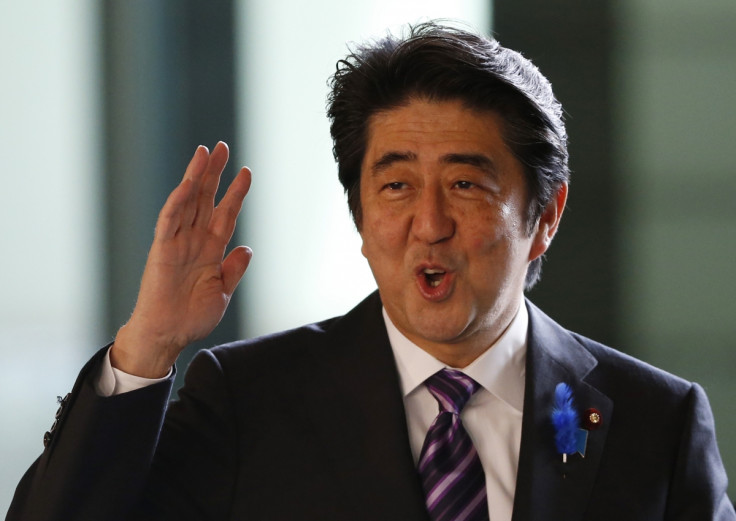Japan Prime Minister Shinzo Abe pushes bill to expand role of military

Japan Prime Minister Shinzo Abe is pushing through a bill that will allow Japan to send troops out to fight abroad for the first time since World War II, despite strong opposition from both the public and other political parties.
Abe insists that the move is vital to meet new challenges, such as those from China which has started to flex its arm in the region. The change from a pacifist nation, a stance adopted by the country for the past 70 years, is a welcome to Japan's strongest ally, the US.
Opponents to the bill however say that it will violate Japan's pacifist constitution and could entangle Japan in US-led conflicts around the world, Reuters reports.
Abe, after failing to get public support to amend the pacifist constitution imposed by the US after the second world war, decided to re-interpret it for the purpose of the new legislation.
This includes the option for the military to go into battle to protect allies, called the "collective defence", even if there is no direct threat to Japan or its people, something which previous Japanese governments have opposed.
The bill was approved by a lower house panel on Wednesday (15 July) and is expected to be approved by the full lower house this week. The ruling bloc has an overwhelming majority in the lower house. The legislation will then proceed to the upper chamber.
"Political veterans are starting to predict that, like his grandfather (Nobusuke) Kishi, he may achieve his goal but have to resign," said an independent political analyst Minoru Morita.
Kishi, a wartime cabinet minister was Japan's prime minister from 1957 to 1960. He resigned 55 years ago on 15 July 1960 following public anger after he pushed through a revised US-Japan security pact through parliament.
Others however believe that Abe will survive, given the weakness of rivals both in and out of his party, the Liberal Democratic Party.
The voting in the lower house committee took place while hundreds of protestors shouted opposition to the legislation outside the parliament building. Thousands also rallied against Abe on Tuesday.
© Copyright IBTimes 2025. All rights reserved.






















